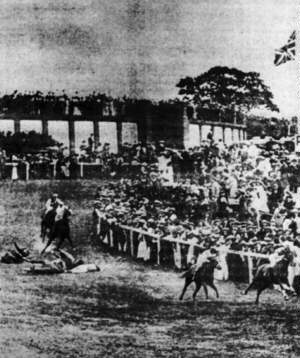
|
||
Feminism and WarSimon Sheppard attempts to bridge the ‘missing link’ between feminism and war and asks, Were suffragettes responsible for World War One?Originally posted as ‘How Feminism Led to Two World Wars’ in September 2003. Revised December 2014. |
||
| Jones, the King’s jockey, and Emily Davison, a leading suffragette arsonist, both lie unconscious after the latter walked onto the course during the Derby of 4 June 1913. Jones escaped serious injury but Davison never regained consciousness and died four days later, though it was more likely to have been a bungled attempt to spoil the race than a suicide mission. The suffragettes’ campaign was of increasingly sensational and criminal actions designed to attract press attention but which, by 1914, had lost them what public support they had. The Daily Mirror paid £1,000 for this photograph, a fortune at the time. |
In this article I shall argue that the rise in ‘feminism’ led directly to two disastrous world wars. These of course involved the death of over 50 million people, with many adverse social and political effects in addition. The essay will attempt to address the underlying mechanisms – the big picture rather than the fine details – and applies an analysis based on a male-female dichotomy.
Men have subjugated women throughout history for many reasons but one of especial importance was the desire to control population numbers. The anthropologist Marvin Harris argued that a sudden population increase around 10,000 BC led to an immediate fall in living standards. Based on archaeological evidence, this occurred in several cultures simultaneously and there has hardly been a population reduction since.1
Sometimes the view is advanced that war serves to limit population, but this is a fallacy. The vast majority of victims of cannibalism and war has always been males, while population growth is in direct proportion to the number of reproductive females. Killing female babies and children was the established method of keeping numbers at a level which could be comfortably sustained by a nomadic, hunter-gatherer society. This is the origin of the female infanticide which persists in several regions today.
Incidentally this is why we find little girls, particularly, so endearing: their mannerisms and our reactions to them have evolved to compensate for their vulnerability to being killed.

|

|
Suffragettes and War
By about 1700 and for two centuries subsequently, conflicts between European nations had become practically ritualized. Casualties were few, since the combatants on both sides consisted mostly of temporary conscripts, conscious that their role was merely to enable some nobleman to prove himself in courage and tactics to his peers. They could shortly be fighting on the other side. According to Veale, these minor wars were often abandoned once injuries had been sustained and the outcome was apparent.2
The Women’s Social and Political Union (WSPU) was formed in 1903 and in 1910 publicly declared that it was in a “state of war” with the British Government.3 A campaign of insurrection and arson followed, plus hunger strikes by prisoners. On the declaration of war against Germany on 4 August 1914 Emmeline Pankhurst and her eldest daughter Christabel declared a truce for its duration, and six days later the British government released all suffragette prisoners. This culminated in the granting of voting rights to women by parliament in January 1918, 10 months before the end of the war.
The franchise was given to women even before being widely available to men: at that time only male property owners were able to vote. Lord Curzon, Sir Oswald Mosley’s father-in-law, argued in opposing the bill that limiting the vote to women over 30 was a wholly arbitrary restriction which could not last. He told parliament that extending the franchise to women was “a vast, incalculable, and almost catastrophic change... which was without precedent in history and without justification in experience.”4 Curzon, like many others since, claimed that having given women the vote it could never be withdrawn, but this is a short-sighted view.
As Steve Moxon pointed out in The Woman Racket, women were already able to vote on local matters. Actually, at this time married ‘society’ women were automatically given responsibility for the hiring of domestic staff, so were the single biggest group of employers. To grant national voting rights to middle and upper-class women, as demanded by the suffragettes, was to consolidate their elevation above millions of working men.
In the carnage of the First World War, the military traditions of the previous two centuries were shed; thenceforth Europeans would fight each other with no holds barred. F. J. P. Veale described the situation as follows:
From patriotic motives, at first to assist the war effort and later to justify the dictated terms of peace, professional historians, many of them men of great eminence and learning, laboured to confirm and endorse the Wicked Kaiser Myth. Once however this had been exposed as an impudent propaganda fiction, they failed to find any generally acceptable explanation for the blind homicidal frenzy which seized the nations of Europe during the period, 1914-1918, and ultimately they became resigned to leaving the problem for solution to the psychologists and psychiatrists.5
We should ask, and seek a satisfactory answer to the question: Was it a coincidence that the British government capitulated to women at precisely the same moment in history that it directed a blood feud of a savagery unknown for centuries? Extraordinary lengths were taken to prevail in the First World War, and extraordinary measures were taken rather than accede to the German and American peace overtures which were made, especially during December 1916.
It is generally acknowledged that the First World War directly led to the Second.
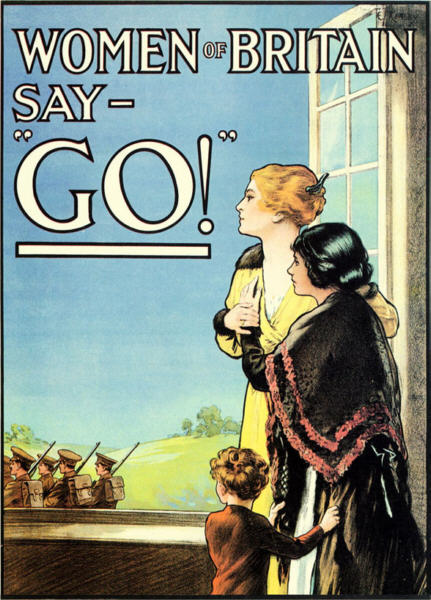
Displacement of Enemy
It is proposed that instincts are never annulled, they are only displaced. If an instinct cannot be expressed in its proper, natural way, it will always find expression in some other, invariably less satisfactory way. If, as seems reasonable to suppose, instincts are impelling, and war practically inevitable, being a masculine impulse and unlikely ever to completely disappear, the selection of enemy is of paramount importance.
One of Darwin’s observations is relevant: that “the competition is always the most severe between the most closely allied species.” The British and German populations are genetically very similar. Another proposal is that ‘females make small differences larger.’
A man who has lost control at home can seek to dominate elsewhere. This displacement idea can be extended to a national leader, perhaps an American president. He must have a great lust for power to attain such a position and it is not surprising that once installed he wishes to “flex his muscles” and exercise some real power. However his options for doing so at home are limited. His masculine instinct to dominate and subdue may be exercised far away instead.
It may be said (with justification, but which is beyond the scope of this article) that the stated reason for embarking on war is nearly always a pretext. The ‘trigger event’ can be manipulated for this purpose, or a random spark may ignite an entirely unrelated charge.
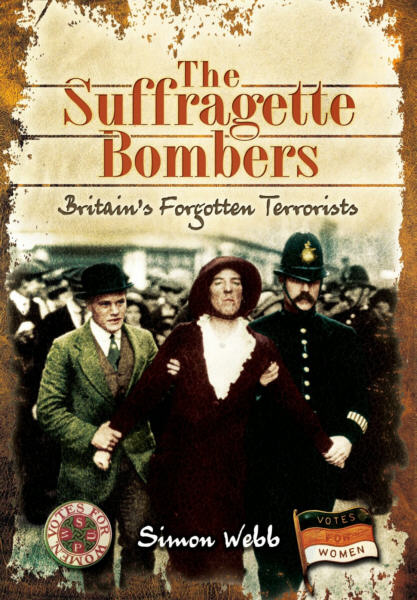
Pankhurst’s suffragettes and their financiers were gentry and by 1910 the British Establishment had, quite simply, lost control of its women. Major donors to the WSPU included Lady Wolsely, Viscountess Harberton, Lady Sybil Smith, the Hon. Mrs. Hamilton Russell, the Countess de la Warr, Princess Sophia Dhuleep Singh, the Hon. Mrs. Haverfield, Lady Barclay and Lady Brassey. The WSPU was awash with money and explicitly repudiated giving working-class women the vote.
While the Pankhursts’ loyal army is portrayed chained to railings in their “fight against oppression,” the reality was a sustained campaign of vociferous insurrection led by WSPU officials. In March 1912 women were directed to London’s shopping streets to break around 200 shop windows with hammers. Many works of art were attacked and damaged. Bombs were placed in central London and elsewhere, with the elder Pankhurst receiving a prison sentence in January 1913 for incitement to bomb the house of the Chancellor of the Exchequer.6 Several assassination attempts on public figures were made.7 These were terror tactics by any measure.
A major part of the suffragettes’ criminal, sensation-seeking activities was arson attacks, with young women traipsing across the countryside with cans of fuel to set fire to churches, train stations and pavilions:
In December, 1911, and March, 1912, Emily Wilding Davison and Nurse Pitfield had committed spectacular arson on their own initiative, both doing their deeds openly and suffering arrest and punishment. In July 1912, secret arson began to be organised under the direction of Christabel Pankhurst. When the policy was fully under way, certain officials of the Union were given, as their main work, the task of advising incendiaries, and arranging for the supply of such inflammable material, house-breaking tools and other matters as they might require. A certain exceedingly feminine-looking young lady was strolling about London, meeting militants in all sorts of public and unexpected places, to arrange for perilous expeditions. Women, most of them very young, toiled through the night across unfamiliar country, carrying heavy cases of petrol and paraffine [kerosene]. Sometimes they failed; sometimes succeeded in setting fire to an untenanted building – all the better if it were the residence of a notability – or a church, or other place of historic interest. Occasionally they were caught and convicted; usually they escaped.8
Between February and December 1913 there were 232 recorded bomb and arson attacks; from January to August 1914 there were 105.9 A telling incident was the attack on Glasgow Botanical Gardens in January 1914. Suffragettes planted two bombs, one apparently as a diversion, and sat drinking champagne and eating cakes as they waited for the night-watchman to pass.
Women who were apprehended were given lenient sentences but even these were often only nominally enforced. Imprisoned women went on hunger strike and were released under the terms of the 1913 “Cat and Mouse Act.” This merely regularized the mild treatment they already routinely received. Describing a well known London women’s prison Sylvia Pankhurst wrote that “Holloway had become a jolly place indeed.”10
The desire to dominate and subdue women, a natural male instinct with sound evolutionary origins, was expressed another way. Germany was subjugated instead. Moreover the British government had itself become feminized, choosing as its adversary one more masculine than itself, the sort of enemy the female would choose. By attacking a more masculine opponent, males were serving the female interest. Some factors in support of this hypothesis are:
- The astonishing rapidity of the declaration of war against Germany, made even before a peace lobby could be organized. This was because, in effect, the government had already been at war since 1910. However in that conflict the government’s opponent was one for which the options for retaliation were limited. Frustrated by the terror tactics of the suffragettes, and their impotence in fear of the public reaction which might result from a forceful response, the government was desperate for a “real enemy” it could properly engage.
- The suffragettes’ alacrity in forming an alliance with the government on the outbreak of war. Both forming ‘unholy alliances’ and speed of response are feminine traits. On 8 September 1914 Christabel Pankhurst returned from exile in Paris and immediately gave a speech, not on suffrage but on “The German Peril.” Led by Christabel, militant suffragettes quickly became enthusiastic advocates of the war. Copying Admiral Charles Fitzgerald with his initial group of thirty women, they became active all over Britain in “White Feather Brigades,” handing white feathers to any man in civilian clothing with the intention of shaming him into enlisting. So fervent were the suffragettes that demobbed soldiers, soldiers on temporary leave, civil servants and boys were presented with this symbol of cowardice. In 1916 Emmeline Pankhurst crossed the Atlantic to urge American support for the war and also visited Bolshevik Russia in 1917 with a similar objective.
- Much of the propaganda of the time featured obvious sexual imagery. Typical was the portrayal of a German ‘brute’ and a vulnerable, feminine Belgium, which men were exhorted to rally to defend.

|
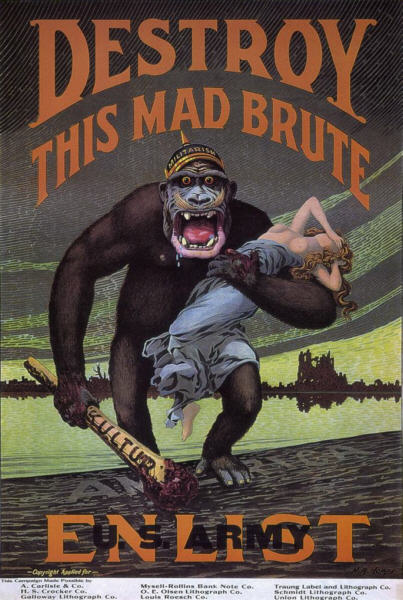
|
Note that each item above contains an implicit admission of female inferiority. In the first, the fear of public reaction had suffragettes been punished as would males for identical offences; in the second, the automatic assumption that women themselves need not enlist and fight; the third calls again upon the notion of the “weak and vulnerable” female.
The suffragettes’ behaviour, in their new, masculine role as aggressor, was exaggerated. Similarly the Allies’ behaviour was exaggerated both during and after the wars because they were conforming to a feminine role (engaging a masculine enemy), a role to which they were unaccustomed. This might be called “over-compensating” but a more accurate description is EBIAR, Exaggerated Behaviour in Alien Role. Adopting an unnatural role, their behaviour was exaggerated.
A nation, like a man, that is secure in itself and in its masculine capacity to control does not wish to cruelly persecute a vanquished foe. This took place after both world wars. An extended analysis of war policies is given in the Table.
Certainly many of the policies being pursued by the German government in the years 1933-39 were masculine. Nationalism is a masculine expression, because it has always been males who fought to defend the tribe (women being regarded merely as the spoils of war). This is confirmed when we see that the great majority of participants in nationalist and patriotic organizations are male. The nation is a larger, more masculine extension of the tribe. Males think of ‘society,’ females of ‘communities.’
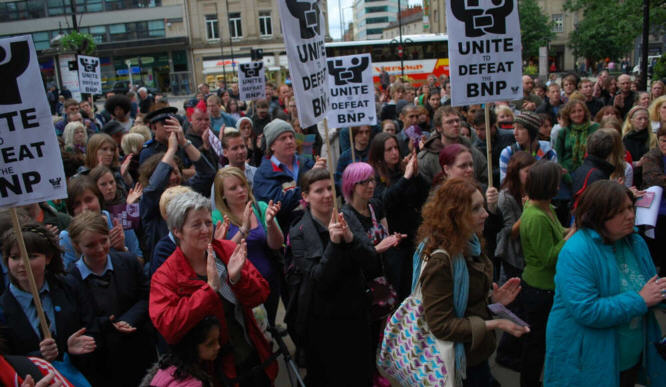
Some of the masculine policies of the National Socialist regime were that it sought to compete with Britain (then the dominant world power); it enforced its borders, sought to recover its former territories and later, expel aliens; it was industrial; militaristic (uniform, rank); it upheld the traditional roles of women and had a leadership with an obvious symbology which possessed power and authority. Incidentally, it is this masculine aspect which accounts for the Nazi regime’s enduring appeal, despite decades of propaganda against it.
Germany was defeated in both world wars by employing that female policy of forming ‘unholy alliances.’ This is an expression of the feminine Conspiracy strategy – a conspiracy does not have to be secret, it may just be unacknowledged. In the first war a pact was forged with Jewry, promising them Palestine in return for bringing America into the war, and in the second the balance was tipped by an alliance with Stalin. Churchill and ‘Uncle Joe’ had nothing in common except their animus toward Hitler: they united against their common, masculine enemy. We see this today in mainstream politicians’ concerted condemnations of nationalist parties.
I hope to have shown how this first wave of feminism had a significant influence in the formative events of 1914, and that feminization played a part in the instigation and unprecedented magnitude of violence of the subsequent two world wars. One cannot help but wonder at the carnage and suffering which might have been avoided had British bobbies, on facing organized suffragette rebellion in the years around 1910, simply been told to “roll up their sleeves.”
Table: Female policies employed by the Allies during the war years
| WARTIME POLICY | FEMALE TRAIT/PROCEDURE | EVOLUTIONARY ORIGIN, NOTES |
| Destroy an economic competitor | Intolerance of competition | Females instinctively conspire to raise the cost of sex and promote monogamy. Compensates for males’ greater physical strength |
| Alliance with Jewry; alliance with Stalin | Forge unholy alliances against a common enemy: Conspiracy | Protection from aggression. Opposite policy to Competition |
| Giving women the vote without a mandate from the British electorate; Balfour Declaration giving away Palestine | Vicarious Generosity | Foster support (e.g. in case of aggression from mate) from other community members using mate’s wealth |
| Punitive conditions of Versailles Treaty; Sea blockade of Germany; Nuremberg Trials; mass starvation of German prisoners after WWII | Unwillingness to forgive. Inability to Egress (i.e. inability to dismiss and conclude matters) | Grudges too useful as emotional weapons (transduction). Compensates for males’ greater physical strength |
| Mass carnage of WWI; terror bombing of civilians during WWII; ‘Total War’ | Exercise no restraint/Going too far. Supra-Maximization of Advantage | Females not evolutionarily adapted to exercising power. Unrestrained exploitation of any advantage. SMoA facilitates Marginal Defection |
| Failure to lift sea blockade on Germany after Armistice; changing terms of surrender between Armistice and Versailles Treaty | Renege on an agreement: tergiversation | Obtaining the best possible mate |
| Apply retroactive law: Nuremberg Trials | Inability to Egress | Grudges too useful. Obtaining the best possible mate |
| Use a pretext for conflict: Invasion of Belgium; secret treaty with Poland | Diversionary Purpose | Obtaining the best possible mate |
| Economic boycott of Germany by Jewry 1933-39 | Money as token | Females prefer signals and tokens |
| Mendacity of Allied propaganda: ‘Bayoneting Belgian babies’; ‘Hun as beast’; ‘Human soap factories’; ‘Gas chambers’ | Stigmatize the opponent: Transduction | Compensates for males’ greater physical strength |
| Exhort population to fight a more masculine opponent; goad Germany to bomb London, motivating a disinterested British public to fight | Manipulate others, especially males, to do own tasks | Compensates for female inadequacy. Increases load on males (which selects for fitness). Selects for males with feminine traits |
| Censor Mosley in years 1933-39 | Control information | Compensates for males’ greater physical strength |
| Imprison Mosley and hundreds of other British nationalists during WWII | Intolerance of dissent | Further female goals by any means available. Insecurity |
| ‘Hitler started war’; ‘Hitler aimed at world domination’; ‘Six Million’ myth | Rewriting of history | Weakens male markers placed during former encounters and confuses males, making them easier to manipulate |
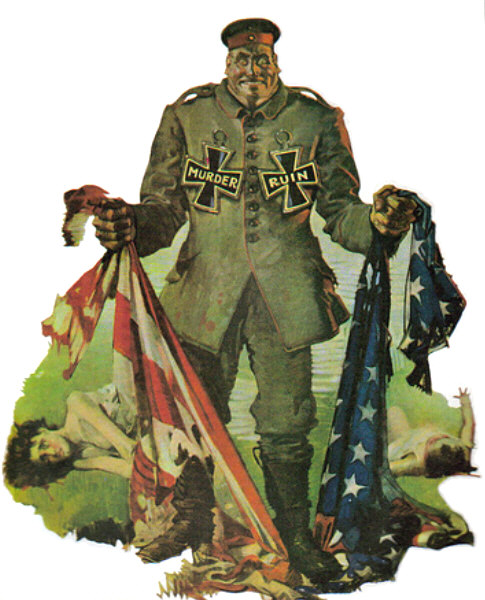
NOTES
1. Marvin Harris, Cannibals and Kings: The Origin of Cultures. William Collins, Glasgow, 1978, pp. 17-23.
2. F. J. P. Veale, Advance to Barbarism: The Development of Total Warfare From Serajevo to Hiroshima. London, Mitre Press, 1968.
3. Times, London, 23 November 1910, p. 8: “The Women’s Social and Political Union has issued a statement in which it says:– ‘As the Prime Minister will not give us the assurance that women shall be enfranchised next year, we revert to a state of war.’”
4. Times, London, 11 January 1918, p. 8.
5. F. J. P. Veale, ibid. p. 13.
6. Times, London, 4 April 1913, p. 4. Also E. Sylvia Pankhurst, ibid. pp. 433-435.
7. Simon Webb, The Suffragette Bombers: Britain’s Forgotten Terrorists. Pen & Sword, Barnsley, 2014.
8. E. Sylvia Pankhurst, The Suffragette Movement: An Intimate Account of Persons and Ideals, Longmans, 1931, p. 401. Also Virago, London, 1977.
9. Christopher J. Bearman, ‘An Examination of Suffragette Violence’, English Historical Review, 120:486, pp. 365-397, 2005.
10. E. Sylvia Pankhurst, ibid. p. 376.